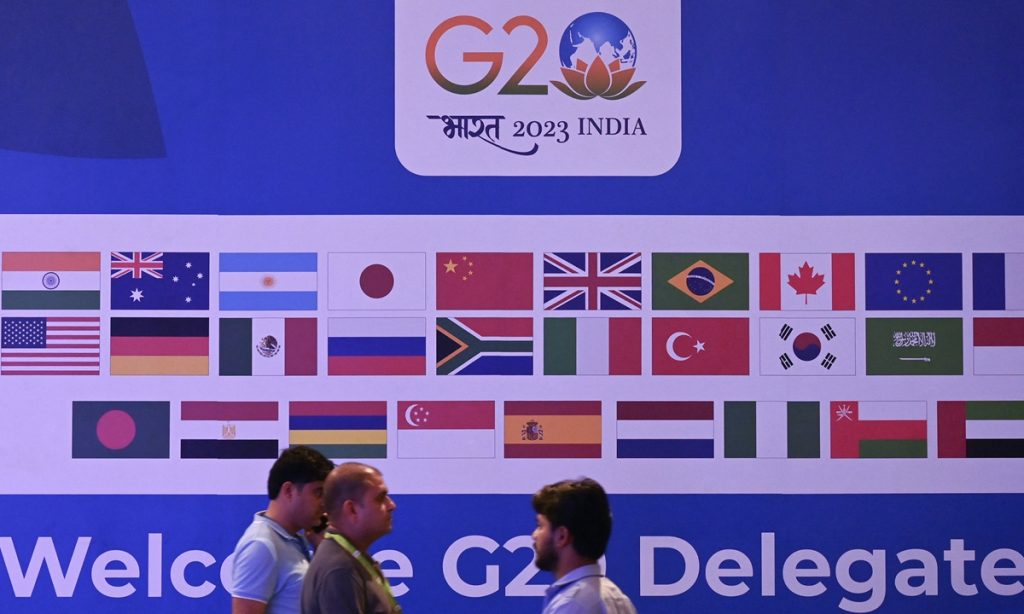G20 not an arena for US to perpetuate its hegemony

There is an old saying in China: "When the wound is healed the pain is forgotten." It means when a person's scars heal, they tend to forget how they got hurt and repeat the same mistakes. As US President Joe Biden was in India to attend the G20 summit, many people naturally thought of the causes and consequences of the G20 summit held in Washington in 2008.
Currently, Washington is eager to transform the G20 into a "battlefield" for competing with China for influence and boosting US global leadership.
According to a Reuters report on Thursday last week, "US President Joe Biden arrives at this weekend's Group of 20 (G20) meeting in India with an offer for the 'Global South': whatever happens to China's economy, the US can help fund your development.''
The goal of Biden's trip to Vietnam and India, as well as his participation in the G20 summit, is to restrain China. Washington has become so keen to contend with China for influence that it is seizing every chance.
What about 14 years ago?
The G20 was established in the late 1990s after the Asian financial crisis as a forum for developed and developing countries to discuss financial stability. It was upgraded to a summit in 2008. The reason was that the bankruptcy of Lehman Brothers in that year set off a financial storm that engulfed the entire West and plunged the world economy into a quagmire. Who would save the West? Who would resurrect the global economy?
Washington turned its attention to emerging economies. As a result, the US became the host of the first G20 summit in 2008.
For a while before this financial crisis, emerging and developing economies accounted for about 30 percent of the global economy. But by 2010, their contribution had reached 70 percent.
In November 2008, the G20 was upgraded from a meeting of finance ministers to a summit, and in April of the following year, the second summit was held in London. In September of the same year, in the Leaders' Statement in Pittsburgh, the fifth clause of the summit declaration had only two words: "It worked."
Biden and Washington policymakers may have long forgotten this scene. The G20 held two summits and effectively prevented the spread of this financial crisis. One of the main reasons was the participation of emerging economies, represented by China.
The Chinese economy has made important contributions to the recovery of the West and the global economy. World Bank reports show that from 2013 to 2021, China's average contribution rate to world economic growth reached 38.6 percent.
The G20 was intended to serve as a forum for fostering collaboration between advanced and developing countries, allowing both groups to investigate and advance the growth of the global economy on an equal basis.
However, in Washington's view, including the IMF and the World Bank, almost all international organizations are "battlefields," and they must seize every opportunity to win over allies and suppress China's influence, forming an alliance to contain China.
China has never sought to compete with the US for hegemony. "Not seeking hegemony" is the essence of China's peaceful development. China pursues common development. Emerging economies among the G20 members also share the same pursuit as China. They clearly show that they are unwilling to follow the geopolitical baton of the US and the West. The declaration reached now clearly demonstrates this issue.
In less than 20 years since the last financial crisis, the US president is anxiously trying to occupy the leadership position of the G20. Anyone with a basic comprehension of the existing global order can detect Washington's fears.
The latest news from Washington shows that $7.6 trillion of US government debt will mature next year, adding pressure on rates. Does it recall what happened in the US in 2008?